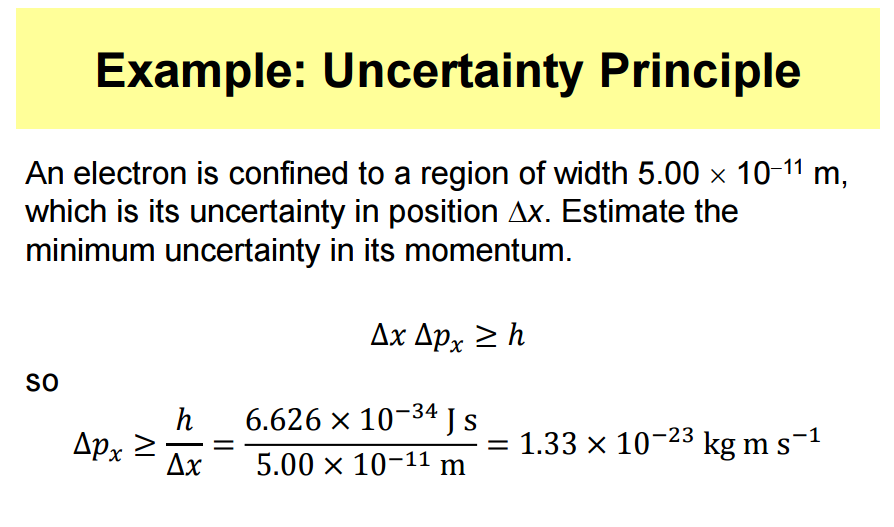At my university, in the during lectures and in the equation sheet for our exams, the formula for the Heisenberg Uncertainty Principle is stated as $\Delta x \Delta p_x \geq h$, for example in one of my lecture notes, the following example is illustrated using this formula
However I know that in my textbook (University Physics by Young and Freedman) and pretty much universally the Heisenberg Uncertainty Principle is stated as $\Delta x \Delta p_x \geq \frac{\hbar}{2}$. Using this formula, we can see the example above is off by a factor of $4\pi$.
Is the formula, $\Delta x \Delta p_x \geq h$, that my university uses a valid formula? If so is just a weaker version of $\Delta x \Delta p_x \geq \frac{\hbar}{2}$?

